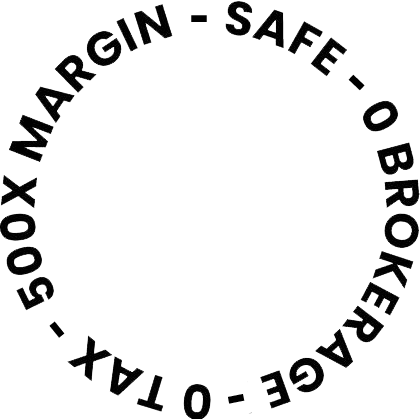How Economic News Impacts Financial Markets: What Every Trader Should Know
Introduction
Ever notice how the market suddenly spikes or crashes after a news release? That’s the power of economic news — it can move financial markets within seconds.
But not all news is created equal.
Whether you’re trading forex, stocks, indices, or commodities, it’s essential to understand how economic indicators and geopolitical events influence market behavior.
In this blog, we’ll break down the most important types of economic news, how they affect different asset classes, and how you can use them to make smarter trading decisions.
What Is Economic News?
Economic news includes official government data, central bank decisions, and major geopolitical events. These announcements often give insights into the health of an economy, influencing investor sentiment and price direction.
Types of Economic News That Move Markets
- Interest Rate Decisions
- Released by: Central banks (e.g., Federal Reserve, RBI, ECB)
- Impact: Huge
- A rate hike usually strengthens the currency, weakens stocks.
- A rate cut can boost stocks but weaken the currency.
- Inflation Data (CPI, PPI)
- Shows how fast prices are rising
- High inflation = Potential rate hikes = Negative for stocks, positive for currency (short term)
- Low inflation = Rate cuts = Mixed market reactions
- Jobs Reports (Unemployment Rate, Non-Farm Payrolls)
- Strong jobs data = Healthy economy = Positive for stocks
- Weak data = Risk of recession = Currency and stock volatility
- GDP Growth
- Measures overall economic health
- High GDP = Market optimism
- Falling GDP = Recession fears — Stock sell-offs
- Geopolitical Events (Wars, Elections, Trade Deals)
- Highly unpredictable
- Can cause spikes in safe-haven assets like gold or USD
- May lead to panic selling in riskier assets like crypto or stocks
How Different Markets React
| News Type | Affects | Likely Market Reaction |
|---|---|---|
| Rate Hike | Forex, Stocks | Currency rises, stocks may drop |
| Inflation ↑ | Commodities, Forex | Gold may rise, and currency may strengthen short term |
| Jobs Data | Stocks, Forex | Positive for markets if growth is moderate |
| GDP Falls | Stocks | Bearish — market fears a slowdown |
| War/Conflict | Gold, Oil | Safe-haven assets up, equities and crypto fall |
Economic Calendar: A Trader’s Best Friend
Stay prepared by tracking upcoming announcements with an economic calendar. It highlights:
- Event type (e.g., CPI, rate decision)
- Country involved
- Expected impact level (low/medium/high)
- Forecast vs. previous data
Tip: Avoid entering large trades just before high-impact events unless you’re prepared for volatility.
What Happens During Major News Releases?
- Spread Widening: Bid-ask spreads can become very wide
- Slippage: You might not get filled at your expected price
- High Volatility: Prices can swing aggressively in seconds
This makes risk management even more crucial at such times.
Should You Trade the News?
There are two approaches:
- Avoid trading during news releases — wait for volatility to settle.
- News trading — enter positions before or right after news, based on expectations.
If you’re new, it’s often safer to sit out high-impact events.
Conclusion
Economic news isn’t just headlines — it’s a market-moving force. As a trader, understanding how different events influence asset prices can give you a significant edge.
Don’t blindly react — instead:
- Watch the economic calendar
- Understand the context behind each release
- Combine news with technical analysis for better decision-making
Stay informed, stay cautious — and you’ll stay ahead.
Start Trading in 3 simple steps
- 1
Quick Registration
Sign up with just an Email & Phone number
- 2
Deposit Instantly
Super fast Deposits via UPI or bank transfer
- 3
Start Trading
Start Trading in seconds in the Global Exchanges


Contact Our Team



 Google Play
Google Play  App Store
App Store  Desktop
Desktop  Web
Web 


 info@tradebazaar.com
info@tradebazaar.com  WhatsApp Chat +91 87933 46579
WhatsApp Chat +91 87933 46579